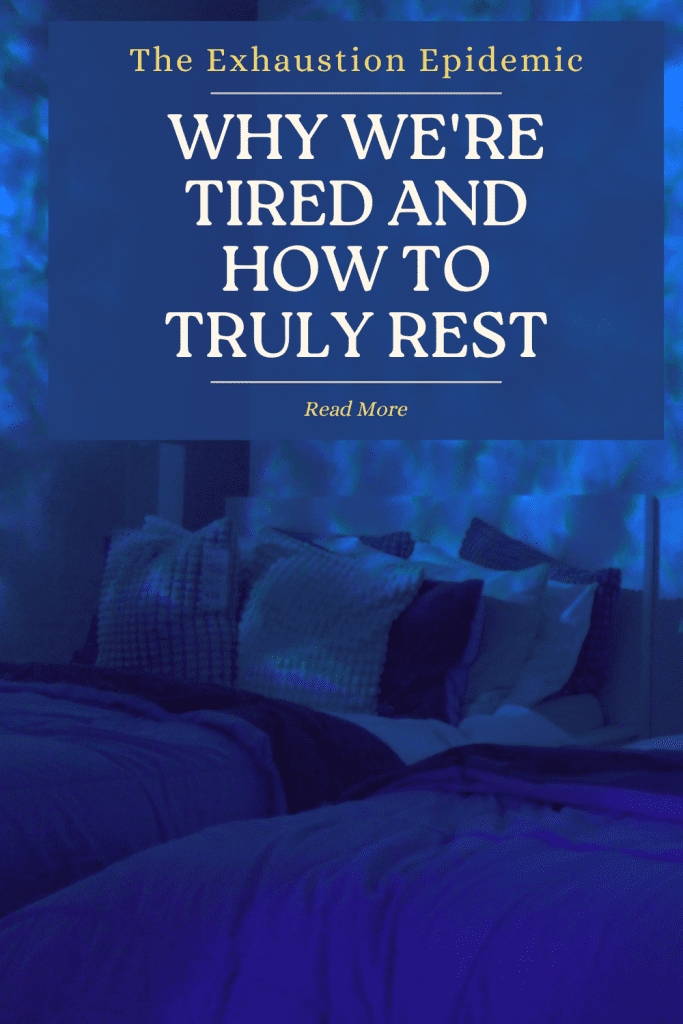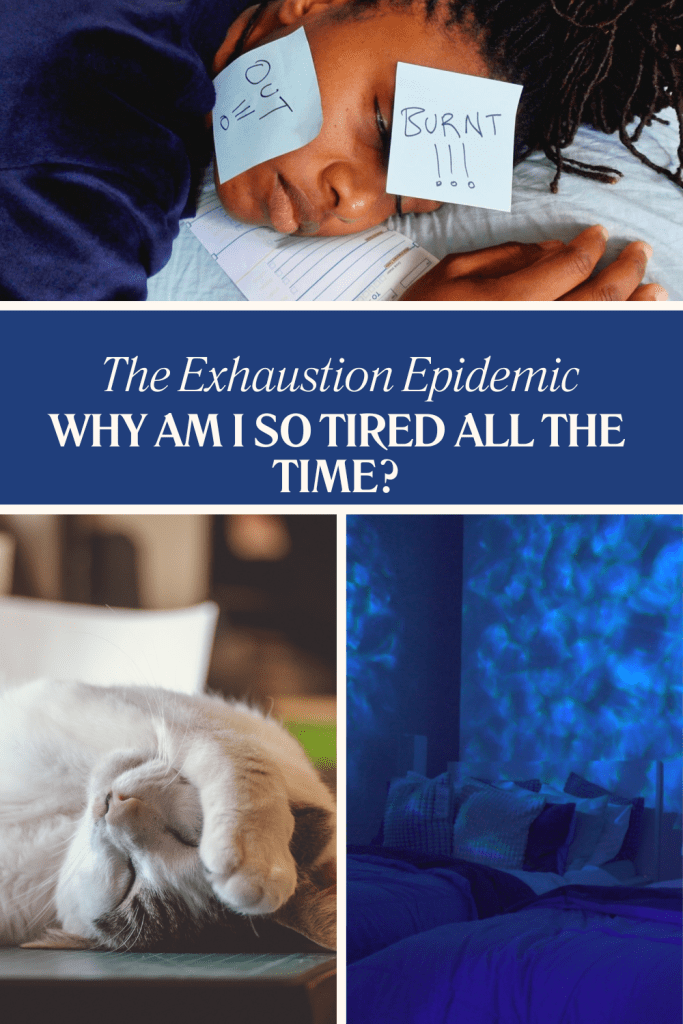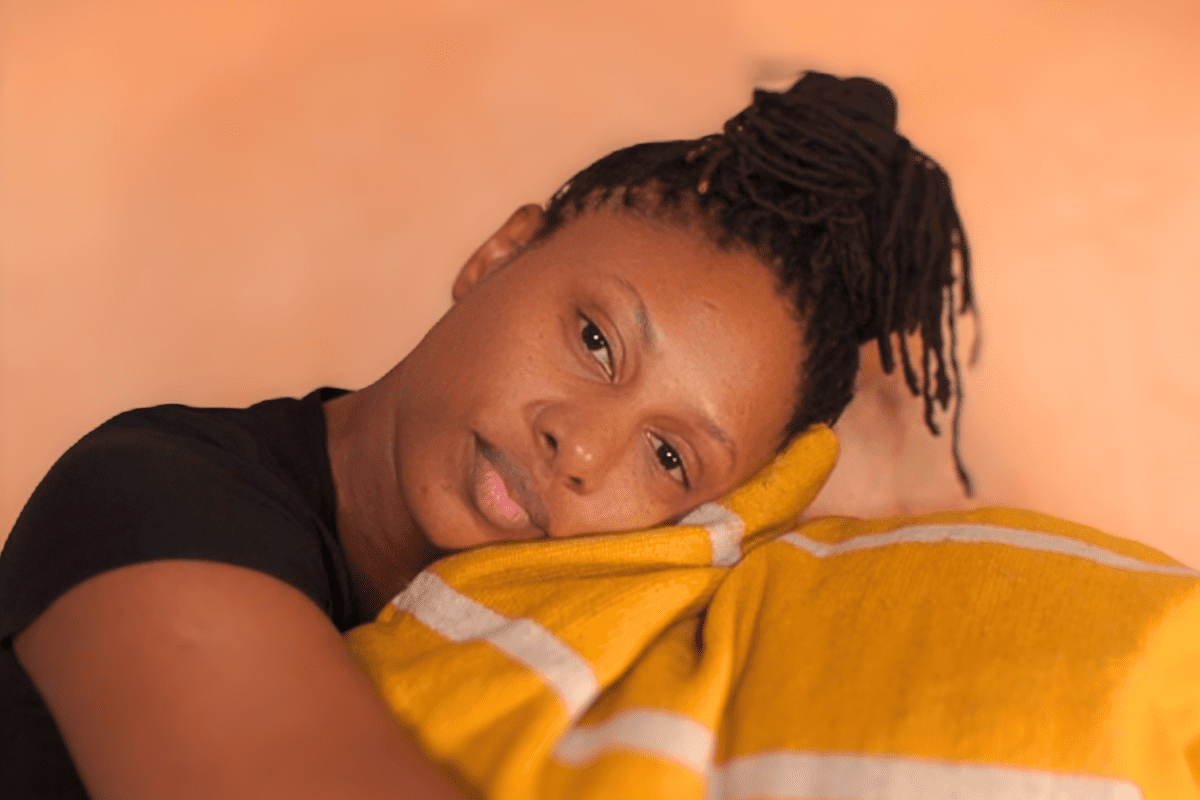Being exhausted is more than just an inconvenience, and it doesn’t always mean that you’re not getting enough sleep. (Even though that’s normally the first thing we blame when we feel tired.) There are plenty of other factors that contribute to our never-ending exhaustion.
Every day, more and more people are vocal about how tired they are, even though they got enough sleep. I was walking to the gym one morning and overheard a short conversation where the first thing someone said was, “I’m still tired, but I did get some sleep though!”
Waking up tired has become so normal that it’s highly possible we’ve all forgotten how it feels to wake up truly rested. I believe we’re in the middle of a silent and highly overlooked epidemic, and most of us are struggling to cope.
Don’t get me wrong, it’s not a matter of consciously ignoring this issue; it’s a matter of not knowing that it even exists. So why is this happening? Why are we so tired all the time? And more importantly, how can we do something about this chronic fatigue?
- The Lack of Knowledge
- The Consequences of Not Resting
- Getting Rest Isn’t Just About Getting Enough Sleep
- Overcoming Exhaustion Takes Time
- Questions You May Have
The Lack of Knowledge
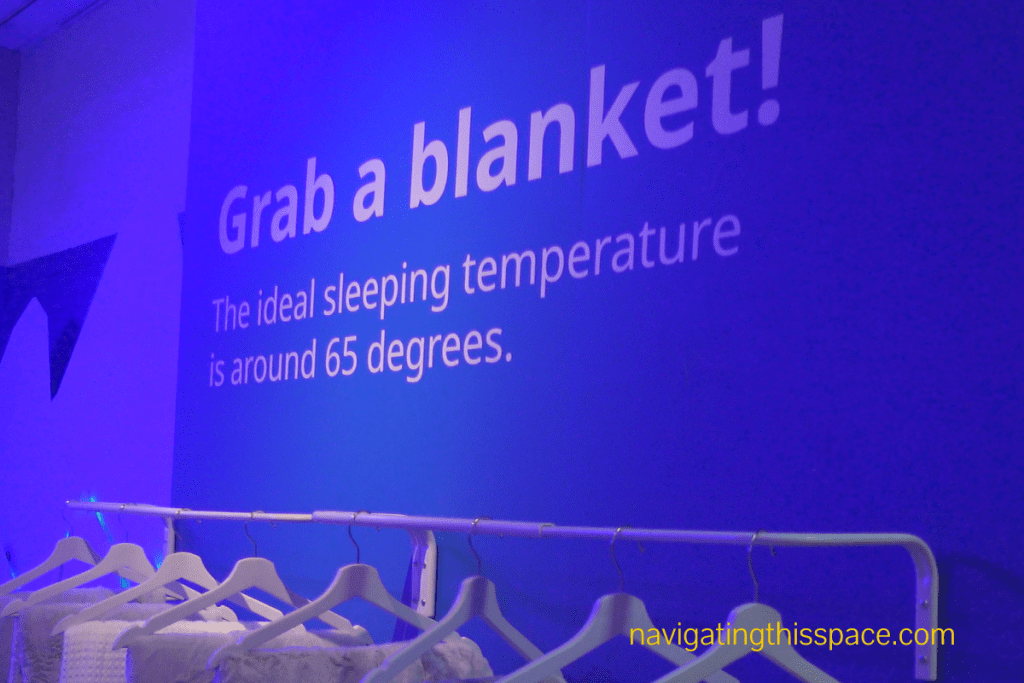
If you’ve ever asked yourself, “Why am I so tired all the time?” you’re not alone, and what you are about to read may shed some light on why that is.
Recently, I read a report that the National Safety Council published about managing fatigue, and it highlighted something very important:
“In some high-performance cultures, employees may view fatigue as a sign of weakness or laziness. They may be committed to getting the work done despite long hours, even coming to believe fatigue doesn’t affect them.”
We’re dealing with more than just a misunderstanding of what it means to rest; we’re dealing with old belief systems deeply ingrained in our generation—a system that believes getting rest means laziness.
The fast-paced, hectic, full-schedule lifestyle is what we all grew up accepting as normal, and that’s how many industries survive and thrive. We work around the clock just to not get enough rest to work around the clock again.
This was something that was emphasized while I was in film school.
It was constantly expressed to us by professors and other people actively working in the industry that getting rest was almost impossible, especially when you’re on set filming a feature-length movie, which takes roughly three months to shoot. Long days, and mostly longer nights, on repeat for months at a time.
I had nine classes in one semester, and not one of them taught us how to rest, how to understand and identify the signs of fatigue, or how to manage it. Instead, we were taught the importance of hard work, resilience, and perseverance. And while those are important qualities to have, they should not come at the cost of our health and well-being.
We Were Never Taught How to Rest
From a very young age, we were programmed to be constantly productive.
Whether it was school, chores, or extracurricular activities, we were taught that we should always be doing something. If you were caught relaxing, that was unacceptable. If you’re going to relax, read a book.
Being idle, as my Jamaican grandmother used to say, means you’ll either never amount to anything in life or you’ll always find yourself in trouble. And she wasn’t the only one who repeated this saying on a daily basis.
No one truly understood the value of just relaxing and allowing their bodies to rest, so that mindset got passed down from generation to generation. Because it’s not sustainable by any means, we’re the ones feeling the brunt of it.
We’re constantly on the go, always moving, always surrounded by noise, and never taking a moment to just be still and rest.
This constant state of being busy has become a badge of honor in society—something we wear with pride and use to measure our worth and success. But at what cost?
The Consequences of Not Resting
I’m sure you already know some of the consequences of not allowing your body and mind adequate rest, but I would never assume that you fully understand how deeply being exhausted is affecting you.
According to the CDC, in 2022, 13.5% of adults aged 18 years and older reported feeling very tired or exhausted most days or every day in the past three months.
This is a serious issue, and I’m still surprised by some of the symptoms of exhaustion I’ve experienced in my own life. The chronic headaches, the irritability, the forgetfulness, and the body aches are just a few of the physical symptoms.
Not all the symptoms are physical, either. Our mental and emotional health also suffers when we don’t allow ourselves to recharge and rejuvenate.
Symptoms of Exhaustion
- Reduced energy levels
- Less patience for socializing
- Increased risk of accidents
- Decreased alertness
- Impaired concentration
- Slower reaction times
- Struggles with completing daily tasks and responsibilities
- Greater susceptibility to illnesses
- Slower recovery times
- Increased feelings of anxiety and frustration
That list is a lot longer, but I’ve only included ten of the main ones I see daily.
Our relationships are also negatively impacted because we lack the energy and patience to properly communicate with others. Considering communication is the most vital part of a successful relationship, it’s no wonder so many dissolve.
Yet, no one really teaches us how to rest. And I don’t mean just sleeping, but truly resting.
Rest is an essential part of our overall well-being. It’s more than just getting eight hours of sleep; it’s about giving our body and mind the care they need to rejuvenate.
Getting Rest Isn’t Just About Getting Enough Sleep
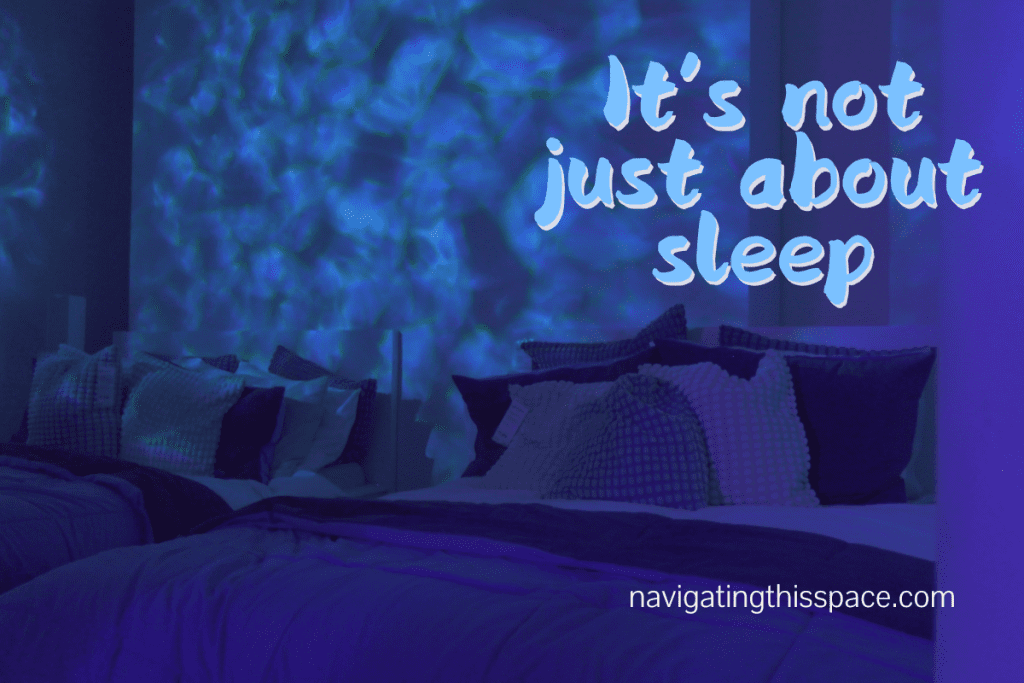
While sleep is crucial, it’s not the only form of rest we need. It’s actually the last step to getting adequate rest.
There are several types of rest that we should start prioritizing. The three mentioned below are the ones I believe need immediate attention.
Mental Rest
More and more attention is being given to the importance of mental health in our lives because it’s time we fully break the stigma that has persisted for decades.
I still know a lot of people who think therapy is only for those who have gone through extreme traumatic events, but therapy and seeking mental rest is for everyone and should be prioritized by everyone.
Going to therapy doesn’t mean there’s something wrong with you; it means you’re prioritizing your mental well-being, and that’s something we all need to do.
Constant multitasking (which doesn’t work, by the way) and information overload can leave your mind feeling frazzled.
How many times have you felt better simply by stepping away from a stressful situation?
Probably more times than you can count, right?
Doing this more often will help signal your brain to start relaxing.
- Take short breaks throughout your daily tasks.
- Focus on your breathing and take a few deep breaths.
- Close your eyes for two minutes and do absolutely nothing.
Even with a super hectic schedule, you can always find two minutes to let your brain return to its preferred relaxed state. When your brain is in a heightened state, you don’t operate optimally—your ideas won’t flow, and everything becomes chaotic.
Taking quick mental rests throughout the day will help keep you grounded and prevent stress from taking over. Also, a less stressful day can mean a more restful night; who knows, you may even fall asleep quicker.
Sensory Rest
I chose sensory rest over emotional rest because the world has become so loud and filled with so many things to see. If you’re not actively blocking out the overwhelming noise, you’re more overstimulated than you realize.
If you’re not careful, you’ll never know what it’s like to experience true quietness, which is where sensory rest comes in.
Now, you may be asking yourself, “What is sensory rest?” No worries, I’ll explain. It’s the act of purposefully limiting the amount of sensory stimulation you receive.
Think of your senses—yes, your five senses—as a cup that’s constantly being filled every time you engage with something.
Everything we hear, smell, taste, touch, and see all adds to our cup, and once it gets too full, we can become overwhelmed, overstimulated, and exhausted.
Not all of our senses become overstimulated at once; it all depends on the environment we live and work in.
I live in New York, so my sense of sound tends to get overwhelmed very quickly. To combat this, I wake up extremely early sometimes (5:45-6:00 am) and enjoy the sound of the early morning stillness before the sirens, car horns, and loud people start.
Starting my day like that allows me to have a better start because I’m not waking up in all the confusion and starting my day already frazzled.
It just occurred to me that this is why most New Yorkers are so short-tempered—they go to sleep and wake up in chaos without allowing their minds to get a break.
As another example, I used to despise the summer months in New York, even though that was my favorite time to be in the city, simply because of the air conditioning unit.
It was always too loud, and I felt like I never got the chance to have a quiet moment during the summer because my quiet hours in the early morning were replaced by a loud machine that kept the room cool enough to sleep.
It fulfilled one need and completely obliterated the other, but that all changed this summer when that machine died! I was the happiest person alive because that meant the a/c could be replaced by a quiet one. When I say it did wonders for my mental space, that would be an extreme understatement.
I could finally enjoy summer without feeling like a blow dryer on high heat was constantly in my ear.
Try incorporating these things in your life:
- Use earplugs.
- Invest in noise-canceling headphones.
- Set a time when all screens turn off.
- Get an eye mask.
- Diffuse some lavender essential oil.
Set the mood exactly how you want it, not how it was given to you.
Physical Rest
Did you know physical rest is both active and passive?
If you didn’t know this, then you’ve only been relying on sleep to give you all the rest you require, which is equivalent to only washing your body with water and expecting it to be clean without any soap.
Physical rest is divided into two parts: passive and active.
Passive physical rest includes activities such as sleeping, taking naps, or simply lying down and doing nothing. That includes no reading to keep the mind engaged, no scrolling through social media, just pure relaxation.
Forget about the list of things to do and give yourself a break.
Turn on some soothing music or better yet, be in complete silence (if you live in the city, use earplugs—they’re my favorite things to use when I need quietness).
To get the best sleep possible, try to follow these tips:
- Set your room temperature to 65 degrees Fahrenheit (If you’re always cold like I am, 69 or 70 degrees Fahrenheit works perfectly).
- Block out all the lights or, if that’s not possible, use red lights.
- Avoid screens (TV, phones, iPads, etc.) at least 30 minutes before bed.
- Stay hydrated and limit dehydrating beverages before bed.
Active physical rest involves more intentional movement such as stretching, yoga, or even light exercise. These types of activities can help ease tension in our muscles and promote better passive physical rest.
- Go for a relaxing walk—you choose the length and route.
- Take a relaxing swim
- Stretch your body like you’ve just woken up to release your tight muscles
In my household, we have three tiers to our walks: short, medium, and long.
The times and routes always change so we can experience something new on our walk and, most importantly, listen to the subtle gestures of our bodies to know when it’s time to switch over to passive physical rest.
Overcoming Exhaustion Takes Time
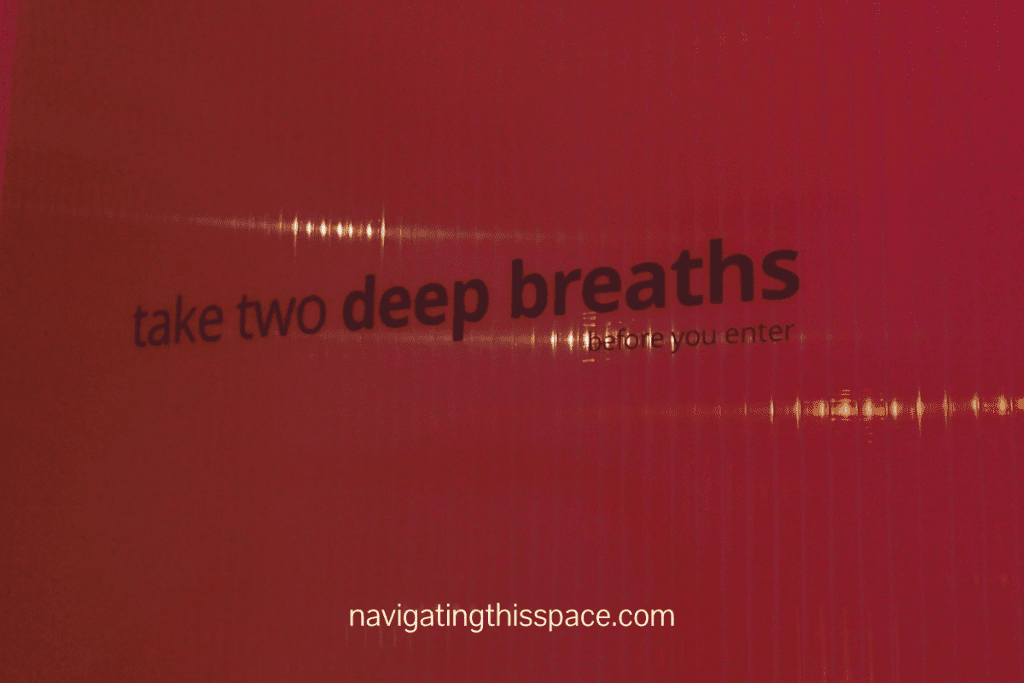
Feeling tired all the time is a sign that your body and mind need more than just sleep—they need adequate rest. There are a lot of other factors that contribute to exhaustion, such as health conditions, lifestyle factors, and even mental health.
The main issue affecting everyone is that we live in a society that operates 24/7 and exalts working yourself into the ground just to survive.
Starting the journey back to feeling rested will take time, and it will be frustrating, but it’s worth your attention and dedication because if you don’t take care of yourself, you’re just running on fumes.
Remember, rest is not a luxury; it’s a necessity. Prioritize it, and you’ll find yourself more energized, motivated, and ready to take on life’s challenges.
If you’re struggling to find ways to rest and recharge, join my free newsletter where I’ll share more tips and tricks on how to incorporate rest into your daily routine.
Together, we can break the cycle of exhaustion and prioritize our well-being. Let’s make a change for the better, starting now.
Questions You May Have
Why am I always tired & have no energy?
Some common causes include not getting enough rest or quality sleep, being physically inactive, having an unhealthy diet, or dealing with stress and anxiety. It’s important to identify the root cause of your exhaustion and take steps to address it in order to feel more energized and rejuvenated.
How do I know if I need more rest?
If you often feel exhausted, have trouble focusing or completing tasks, experience frequent headaches or body aches, and struggle to find motivation, these may be signs that you need more rest. It’s also important to pay attention to your body’s subtle signals, it’s always telling you when something is off so don’t ignore it.
Is it normal to feel exhausted all the time?
No, it’s not normal to feel constantly exhausted. It could be a sign of an underlying health condition, stress or a poor lifestyle. It’s important to consult with a healthcare professional to determine the cause and find ways to improve your overall well-being. Remember, rest is a vital part of a healthy lifestyle and should not be overlooked or dismissed. So listen to your body and give it the rest it deserves.
Can stress cause exhaustion?
Yes, stress is a common cause of exhaustion. Chronic stress can deplete your energy levels, making it difficult to concentrate, sleep well, and maintain a healthy lifestyle.
Pin It!
